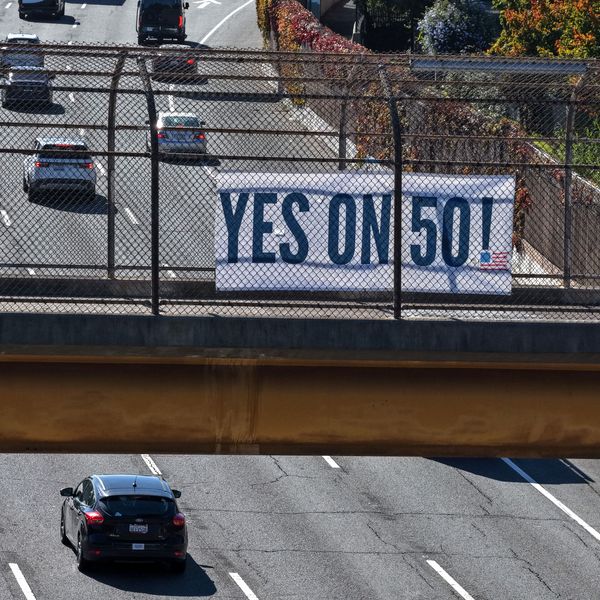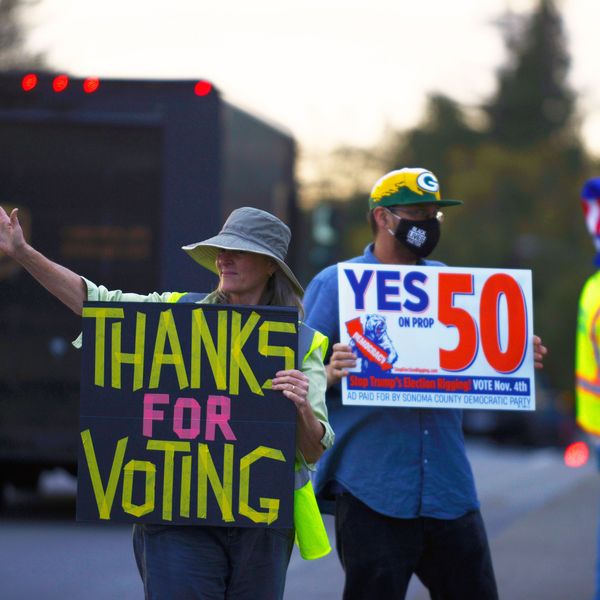California is poised to take a major step towards advancing voting rights for millions of citizens after the state legislature late last week approved a resolution that requires the automatic registration of all eligible voters.
Proponents of the measure say that Governor Jerry Brown, a Democrat, is expected to sign the bill, know as the California New Motor Voter Act. If that happens, the old, manual entry process would be replaced by a system that would automatically sign up California residents when they do business with the Department of Motor Vehicles as of January 2016.
State officials estimate that the state has approximately 6.6 million eligible but unregistered voters who may soon be added to the voting rolls.
Advocates note that, for a state of its size, an effort like this in California could potentially impact the national voting stage.
"Automatic registration in the most populous state in the country is a watershed moment in the effort to fix our broken election system: California will be putting the responsibility for ensuring eligible citizens can vote where it should be -- on the government, not the individual," write Sophie Schuit and Jonathan Brater, both with the Brennan Center for Justice, in a column published at Common Dreams on Monday.
When the bill is signed, California will become the second U.S. state to pass such a law. In March, Oregon's landmark "Motor Voter" bill became law. The New Jersey legislature passed a similar bill in June, though that still awaits the signature of Republican Governor Chris Christie.
While many states, predominantly Republican-led, have passed recent legislation restricting voter access, California and Oregon "are the vanguard of a broader movement," note Schuit and Brater.
They write: "At least 17 states and the District of Columbia have introduced bills that would automatically register citizens. At the national level, presidential candidates Hillary Clinton and Bernie Sanders have endorsed automatic, universal registration, and at least two bills have been introduced in Congress -- one sponsored by Sanders."


